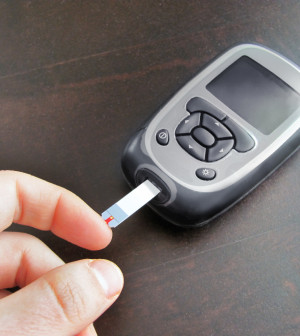- 8 Ways to Increase Dopamine Naturally
- 7 Best Breads for Maintaining Stable Blood Sugar
- Gelatin vs. Collagen: Which is Best for Skin, Nails, and Joints?
- The Long-Term Effects of Daily Turmeric Supplements on Liver Health
- Could Your Grocery Store Meat Be Causing Recurring UTIs?
- Are You Making This Expensive Thermostat Error This Winter?
- Recognizing the Signs of Hypothyroidism
- 10 Strategies to Overcome Insomnia
- Could Artificial Sweeteners Be Aging the Brain Faster?
- Techniques for Soothing Your Nervous System
Cafeteria Debit Cards Linked to Less-Healthy School Lunches


FRIDAY, Oct. 11Students eat more junk food and eat more overall when they pay electronically at school cafeterias, a new study finds.
In an effort to keep lunch lines moving and make accounting easier, about 80 percent of U.S. school cafeterias use debit cards or accounts that parents can put money into, the Cornell University researchers said.
“There may be a reason for concern about the popularity of cashless systems,” they wrote. “Debit cards have been shown to induce more frivolous purchases or greater overall spending.”
The researchers compared purchases made by students in first through 12th grades at school cafeterias that use debit-only systems and those that accept debit or cash, according to a university news release.
The students at debit-only cafeterias consumed an average of 752 calories per lunch, compared with 721 calories for those at debit/cash cafeterias.
Unhealthy foods such as cheeseburgers, french fries, desserts and candy accounted for 441 of the lunch calories consumed by students at debit-only cafeterias, compared with 378 of the calories consumed by students at debit/cash cafeterias, according to the study, which was published recently in the journal Obesity.
The findings have important implications for schools and childhood obesity, said researchers David Just and Brian Wansink, co-directors of the Cornell Center for Behavioral Economics in Child Nutrition Programs.
If the use of cash instead of debit cards can motivate students to make slightly healthier food choices, then maybe something like a “cash-for-cookies” policy in school cafeterias would “encourage students to think twice before making their selection,” the researchers suggested.
More information
Let’s Move has more about healthy school lunches.
Source: HealthDay
Copyright © 2026 HealthDay. All rights reserved.










